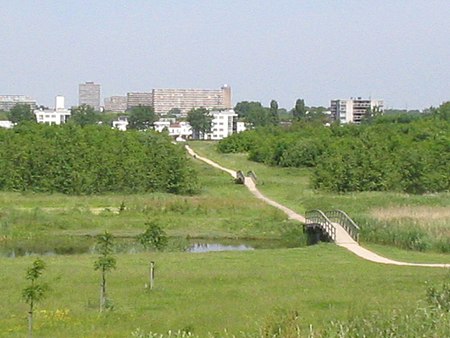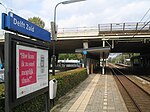Abtswoudse Bos
DelftLand art

The Abtswoudse Bos is man-made park and land art project, opened in 2000, of about 190 ha. It lies south of the Tanthof neighbourhood in Delft, east of Schipluiden and north of Overschie. The Abtswoudse Bos is situated in a polder and has trees, bushes, footpaths, cycling roads, ditches, lakes, and small ponds. The area's waters contain many aquatic plants, like reeds, underwater plants, and floating plants. The polder used to consist of meadows.
Excerpt from the Wikipedia article Abtswoudse Bos (License: CC BY-SA 3.0, Authors, Images).Abtswoudse Bos
Vockestaertpad, Delft
Geographical coordinates (GPS) Address Nearby Places Show on map
Geographical coordinates (GPS)
| Latitude | Longitude |
|---|---|
| N 51.97475 ° | E 4.3640833333333 ° |
Address
Vockestaertpad
Vockestaertpad
2626 AB Delft
South Holland, Netherlands
Open on Google Maps








